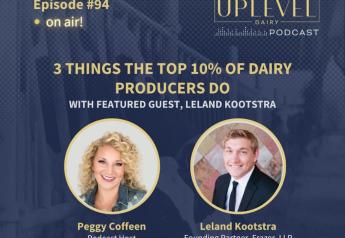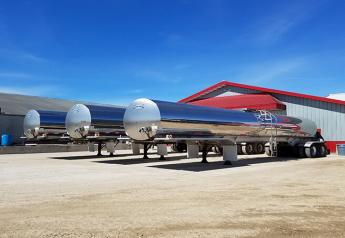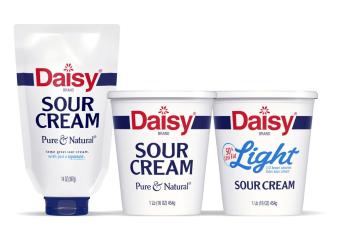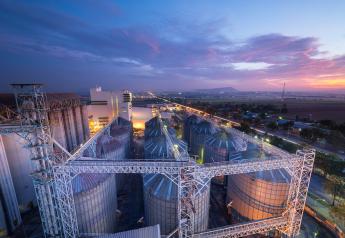China Halts Some N.Z. Imports in Second Case of Tainted Milk

The halt comes just weeks after a botulism scare endangered trade ties between New Zealand and its biggest dairy customer.
Matthew Brockett and Tracy Withers
Aug. 19 -- China halted imports of some tainted New Zealand dairy products for a second time this month as the government increases scrutiny of foreign goods.
China imposed a temporary ban on a milk protein made by New Zealand’s Westland Milk Products after finding elevated nitrate levels in some of the product, the General Administration of Quality Supervision, Inspection and Quarantine said in a statement on its website. The halt comes just weeks after a botulism scare endangered trade ties between New Zealand and its biggest dairy customer.
"Food safety is one of the very top issues China has to deal with," James Roy, a senior analyst at China Market Research Group in Shanghai, said by phone. It is a signal that China will treat food safety as seriously as possible and the country is willing to adopt a "strong effort," he said.
China’s import ban is the latest sign of heightened scrutiny of foreign goods in the world’s most populous country. It barred some New Zealand dairy products earlier this month after Fonterra Cooperative Group Ltd. identified a potentially contaminated whey protein that could cause botulism. China also fined dairy companies for fixing prices of infant formula.
Worse Time
Two batches of lactoferrin milk protein made by Westland and exported to China contained levels of nitrate that exceeded the New Zealand standard, the Wellington-based Ministry for Primary Industries said today. It revoked export certificates for four consignments that were derived from the two batches.
"It’s not a food safety issue, it doesn’t present a threat to Chinese consumers," Prime Minister John Key said at a press briefing in Wellington. "But it’s certainly unhelpful and probably couldn’t have come at a worse time."
Dairy is New Zealand’s largest foreign exchange earner, accounting for 28 percent of overseas sales in an economy where exports make up about a third of output. China bought NZ$7.7 billion ($6.3 billion) of New Zealand’s goods in the year through June, NZ$3 billion of which was dairy.
Earlier this month, China fined six companies including Fonterra, Mead Johnson Nutrition Co. and Danone a combined 669 million yuan ($109 million) for price fixing, a record penalty for violating anti-monopoly laws.
Price Fixing
The official People’s Daily newspaper said in July a government agency had evidence showing foreign milk powder prices had increased about 30 percent since 2008. That year milk powder contaminated with the chemical melamine killed at least six infants.
Several baby formula producers cut prices of key products in China last month with Danone and Nestle reducing some prices by as much as 20 percent.
China is also probing Switzerland-based food processing and packaging company Tetra Pak Group for possible abuse of market dominance.
New Zealand’s dollar fell to a one-month low on Aug. 5 after Fonterra, the world’s largest dairy exporter, said about 38 metric tons of whey protein contained a bacteria which could cause botulism. The source of the contamination was a poorly cleaned pipe at one of the company’s North Island plants.
The New Zealand government today released the draft terms of reference for an inquiry into that incident.
Cleaning Product
Westland said today it appeared traces of cleaning products that contain nitrates were not adequately flushed at its lactoferrin plant at Hokitika, on the South Island’s west coast, prior to a new run of product.
A total of 390 kilograms (860 pounds) of lactoferrin showed nitrate levels of 610 and 2198 parts per million respectively, Westland said in an e-mailed statement, adding all of it had been sent to China. The New Zealand maximum limit for nitrates is 150 parts per million.
The Wellington-based ministry said one batch was exported directly to China as an ingredient for other dairy products by Westland, and the second batch was supplied to Tatua Co- operative Dairy Co. and also exported to China.
"Any food safety risk to Chinese consumers is negligible because the quantities of lactoferrin used in consumer products was very small, meaning the nitrate levels in those products would easily be within acceptable levels," it said.
The ministry has sent a team to the site to confirm how the problem arose and to verify that it is limited to the two batches identified by the company.
"We immediately initiated a process to find and quarantine all of the product and it has been put on hold," Westland Chief Executive Officer Rod Quin said in the statement.







